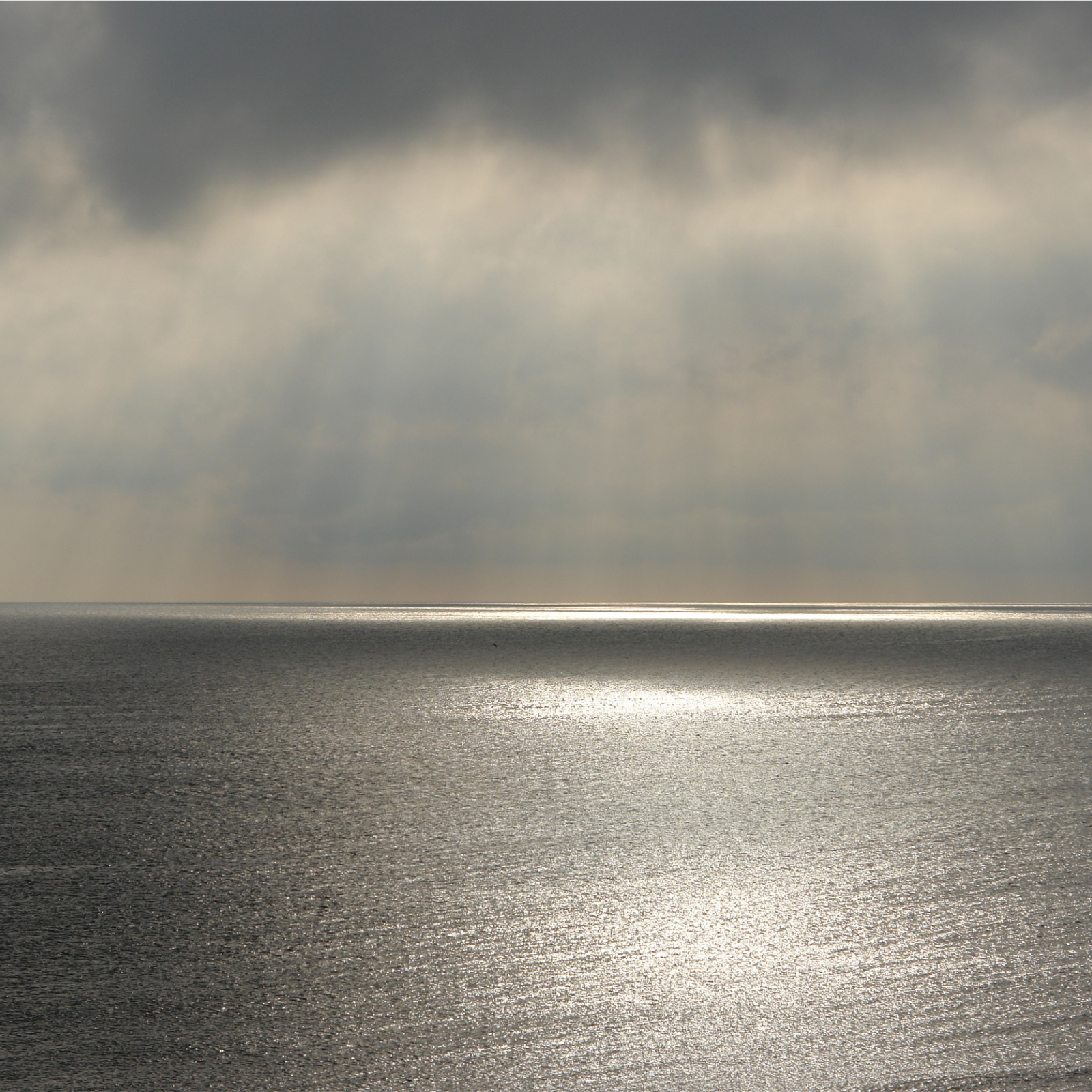Ever wondered why fish is a Friday staple during Lent or the deep meaning behind Ash Wednesday’s ashes? Matt Maher sat down with the JOY FM Morning Show and shares the significance of Lent’s 40 days of fasting, prayer, and almsgiving, leading up to Easter. Hear how Matt says these practices can offer a spiritual reset and deepen your connection to faith, regardless of your religious background.
View this video with Matt Maher, and other interviews with JOY FM artists videos on the JOY FM YouTube Channel.
Nick:
If I walk out these doors two miles in any direction on a Friday, I’m going to walk into a fish fry. Can you explain the significance of the fish? Why can’t I have meat?
Matt Maher:
Yeah. So Fridays, some Christians early in the history of Christianity decided that on Fridays they didn’t want to eat meat at all because Friday was the day on which Jesus died. So to abstain from meat was another form of fasting. So meat is something that… Not in today’s day and age. A friend of mine who doesn’t eat meat on Fridays during Lent jokes and says, “We should give up sushi. That’s way more expense…”
Sandi:
Amen.
Matt Maher:
The point of it was it was another way, once again, of kind of denial of self. Not that that work is what brings us closer to God. God is what brings us closer to God, but it’s making room for His grace to do that. And so abstaining from meat on Fridays became sort of another way in which we’re once again taking time throughout this journey towards Easter to really consider the gift of what Jesus has done for us.
Sandi:
No. As we approach Easter, what is like a 30,000 foot view approach maybe that someone who has grown up Catholic and is like, “This is the 30,000 foot view thing. This is how we approach Easter.”?
Matt Maher:
That’s a great question because the answer would… I would say how we approach Easter is Lent. So 40 days. Symbolic number. 40’s a big number in the Bible. 40 days and nights turned into 40 years for Israel. Jesus to basically be faithful in all the ways man can’t be spends 40 days and nights in a desert. Now, in the early church people said, “I want to be like Him.” So people said, “I’m going to spend 40 days and nights before I celebrate the greatest gift the world has ever… The greatest display of love the world has ever seen, Jesus suffering and dying on a cross to redeem us all from our sin and to rise from the grave and give us all everlasting life.”
So how do you celebrate that? And the question is, do you take time to like He did fast and pray and use the gifts and talents that you have to help those who need to know the love of God? And that’s essentially what Lent is. Boil it down to, it’s like fasting is about making room for God, prayer is about connecting with God, and alms-giving is really about demonstrating His love to those around us in a tangible way.
Sandi:
I hope you’ve given that answer before, because if not, that was genius to come up with that in 30 seconds. That was so good.
Matt Maher:
Well, I’ve been living it for a while, so hopefully by now some of it has absorbed into my brain.
Sandi:
That’s so good.
Nick:
All right. So that’s the overview. We can get into some of the nitty-gritty a little bit here. Ash Wednesday, can you explain the significance of ashes on the forehead? Why do you see that?
Matt Maher:
Yeah. Cool thing a lot of people don’t know this. Ashes are actually… They’re the ashes of burnt palm branches from Palm Sunday the previous year.
Sandi:
Okay.
Matt Maher:
Palms were historically a sign of rebellion. So the palm branch at the time of Jesus was a symbol of a revolt that happened called the Maccabean Revolt and the palm branch became a symbol of it. So when Jesus came into Jerusalem and they’re waving palm branches, it’s their way of saying to the Romans, “We’re going to overthrow this place again. We want Him to start a revolution.” So I think in some ways the symbol of the burned ashes, I think it’s several things. It’s a reminder of our mortality, that we all… Nobody’s getting out of here alive except through Christ. It is an outward expression of faith in the gospel. And it is in some ways sort of a counter-cultural thing of being signed. Typically, you get signed with the sign of the cross because that’s the symbol by which people go from death to life. And so it starts this passage of walking towards the cross and walking towards new life in Christ and also a small way to make an outward sign. It signifies all of those things at the start of the Lenten season.
Sandi:
Two things. One, as I hear, I have always felt a little jealous of the Catholic church at Easter time because I felt like there was some depth and meaning there that I… And I don’t know why it’s… You go to a non-denominational church and you guys had an Ash… I never grew up with an Ash Wednesday service, not one time. And then I went with a couple years ago to a friend and I was like, “Oh, my goodness.” So…
Matt Maher:
And you don’t have to be Catholic to receive ashes. I mean, anybody can go in on an Ash Wednesday service-
Sandi:
To a Catholic church?
Matt Maher:
To a Catholic church. Anyone can get ashes.
Nick:
I didn’t know that.
Sandi:
I didn’t know that.
Matt Maher:
Yeah. It’s one of the few times a year… And it’s funny is that being Catholic, it’s actually considered to intentionally miss going to church on Sunday is a big deal. It’s considered. You’re sort of choosing to separate yourself from the community and from God. But Ash Wednesday’s actually not. They don’t consider it a day of obligation. So you don’t have to go. But it is, I think, an incredibly profound way to start that journey and to kind of look around and, like I said, consider your mortality and be in a season of, “What are some things that God wants me to give up? What are some things that God actually wants me to take on, praying more, reading scripture more? And then how can I,” like I said, “Use my gifts and talents to serve those around me?”
Nick:
We talked about how humbling it is. You get off track in life, a variety of different reasons, and so to just have a little bit of a reset heading into the season.
Matt Maher:
Yeah. It really… And in some ways it’s baked into the framework of life, of this time of year where spring is starting to show up very, very… Snow’s starting to thaw and melt, and there’s signs of life. There’s signs of new life. And all of those things I think are pointing us towards the power of what Christ does in His death and resurrection.
Sandi:
How do you approach personally this season and Lent? And is there a process you go through every year? Is it the same? How do you hear from the Lord to discern [inaudible 00:06:58]?
Matt Maher:
Yeah. Yeah. That’s a great question. I think usually when it comes to stuff, when you’re trying to figure out, “Okay. What should I fast from?” sometimes it is like you just… About a couple of weeks before I just start to look at my life and say, “What creature comforts do I find myself kind of leaning towards more? And what would the removal of that do?” And I think some of it as being a parent and having the same conversation now with my kids where my kids are like… We’re at the breakfast table and my eight-year-old is like, “Ah.” I’m like… He’s started talking and he’s like, “I’m going to give up cereal.” And I’m like, “You don’t eat cereal.” And so we start talking about things like Switch and you see the look on his face, of video games. “Whoa. Wait a second. That’s a little bit too much. Okay?” But that’s the point of it. The point it is to look at these material things and ask the question.
Something I’m doing this year, there’s a great new prayer app called Hallow. And they’re leading people through a book called He Leadeth Me, which is an incredible testimony about a priest who went to Russia during the communist, in the middle of the Second World War, and basically was locked in prison and then in Siberian work camps, spent 24 years there. Incredible book about faith, about the faithfulness of God, about what it means to just listen to the will of God. So Hallow has a thing where Jesus from The Chosen, some other folks are doing excerpts from it every day. So that’s something I’m going to be doing this… And that’s the thing. Lent is really about find a discipline, find a practice. If it’s reading the Gospel of Mark and you get up every morning and you just literally hit a timer and go, “I’m going to spend two minutes and I’m going to go verse by verse.” It’s more about the intent of the heart and the willingness to keep showing up. And then grace does the rest.
Nick:
Man, thanks for walking us through some of the questions that we’ve had and we’re not sure where to ask. And I know Sandi said last question, but I have one more.
Matt Maher:
Okay.
Nick:
You’re on the road a lot.
Matt Maher:
Yes.
Nick:
It’s Lent season. What fast food restaurant has the best fish sandwich?
Matt Maher:
Oh, great question.
Nick:
Help us out.
Matt Maher:
Well, I used to eat gluten, and so I would say the McDonald’s fish sandwich was actually really, really pretty great.
Nick:
The standby.
Matt Maher:
It was a solid standby and…
Sandi:
I hear a but in there somewhere coming.
Matt Maher:
Well, there’s another one, but it’s only in Phoenix. And that’s where I used to live. That one, I ate fast food regularly. I would live in Phoenix, and there was a place called Pete’s Fish and Chips in Mesa, Arizona.
Nick:
It’s got it in the name.
Matt Maher:
The best fish sandwich I’ve ever had in my entire life.
Nick:
All right-



